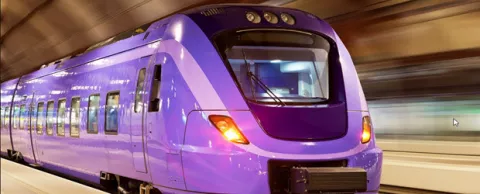
It’s easy to say everyone should have access to the transportation resources they need. But as many city leaders and planners know, it can be much more difficult to deliver on that pledge. A panel discussion among professionals in the field at Smart Cities Week in Washington, D.C. addressed the issues involved in providing truly inclusive mobility options for everyone — and why it’s such an important commitment for smart cities to make to their citizens. — Doug Peeples
"Many of us can see inequities that exist, but they get much more complex when we take action." That comment was from someone who knows a lot about urban mobility: Colleen Casey, Urban and Community Development policy expert for Council Lead Partner Toyota.
The Smart Cities Week panel discussion Casey moderated focused on the critical components of urban transportation infrastructure: understanding what inclusive, equitable mobility means to all segments of a city's population, what it takes to provide it and how it affects the quality of life for citizens.
The city of Columbus, Ohio won the U.S. DOT's Smart Challenge, in large part because part of its proposal to reduce traffic congestion and improve safety included a component to provide accessible, affordable transportation to a city neighborhood that had an extremely high infant mortality rate and a high percentage of low-income residents. As the Challenge winner, the city receives $40 million from DOT and $10 million and technical guidance from DOT's philanthropic partner Vulcan.
For Jordan Davis, smart cities director for the Columbus Partnership, it's an obvious responsibility for the city to provide equitable, accessible mobility for all. "Individualized systems need to work for all people. If we don't help them we're making life harder for them." She added that transit users should be able to expect on-demand, on-time service.
Davis made it clear that the city of Columbus and the Partnership's goal of completing its transportation network makeover would never be met without help — and not just from the private sector or government grants. "We need radical collaboration to solve problems. We need feedback from people because whatever we come up with needs to be used."
More than mobility
Obviously, Columbus isn't the only city with a transportation network that doesn't work for everyone. Shima Hamidi, director of the Center for Transportation Equity at the University of Texas, commented that the low-income residents living in the Dallas area are transit-dependent — and that 40% of them live in "transit deserts," areas where they don't have access to mass transit. As Hamidi explained, "They don't have physical access to jobs. So their access to opportunities to improve their quality of life is lower, and that means lower access to education, healthcare, affordable housing.
"It’s not only about mobility. It's about quality of life. It's about income. And it's long-term."
Mark Dowd works in mobility, technology, smart cities and environmental policy at the University of California, Berkeley. He very much agreed with Davis and Hamidi on the need for citizen engagement in transportation planning. "You can't just jam ideas into communities without citizen engagement." He also confirmed the need for cities to collaborate with the private sector which, in this instance, includes local businesses because "The private sector knows more about our citizens than we do. We need to right that ship."
Panelists also recommended that cities find non-traditional transit options that could provide equitable, dependable service for low-income residents regardless of their location. Depending on a city's circumstances that could mean a form of micro-transit, partnerships between public transit agencies and private transportation companies. And those transit options also should include bringing high-speed internet access to public areas to help people who have no internet access or a smart phone find the rides they need conveniently and quickly.
Doug Peeples is a Portland, Oregon-based writer specializing in technology and energy. Follow @smartccouncil on Twitter.



